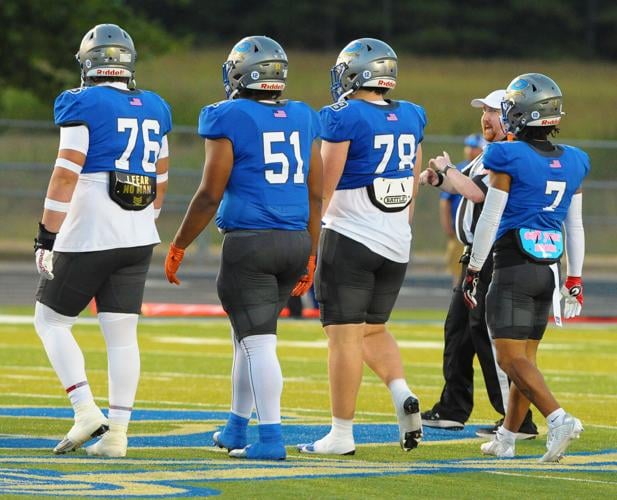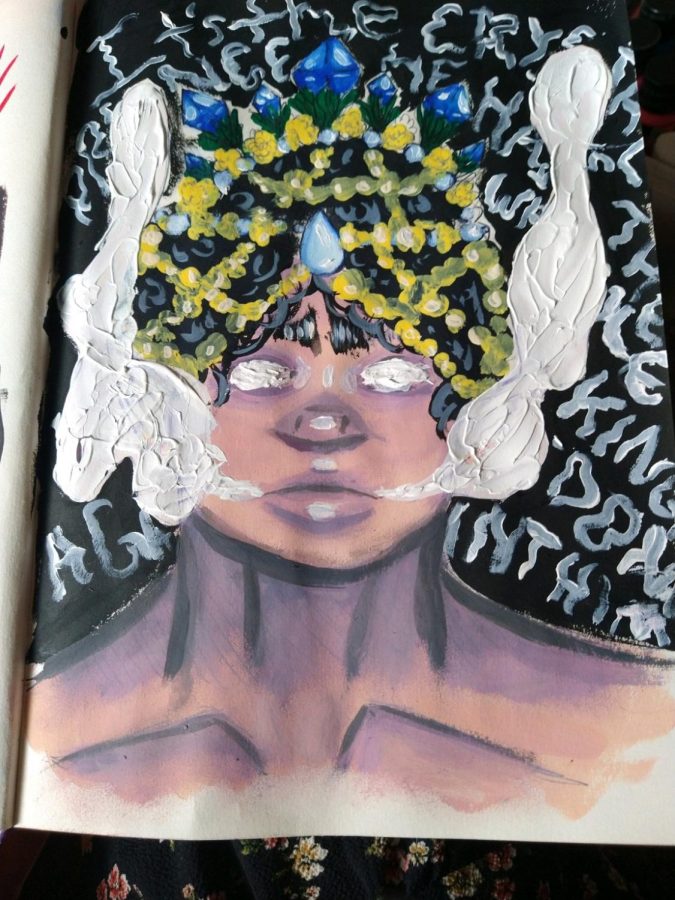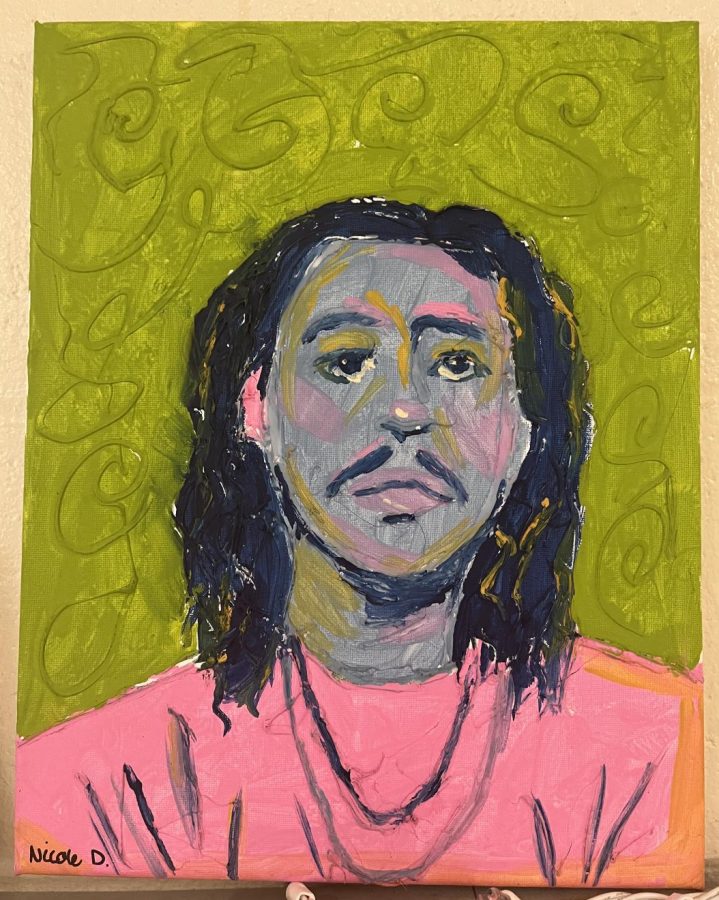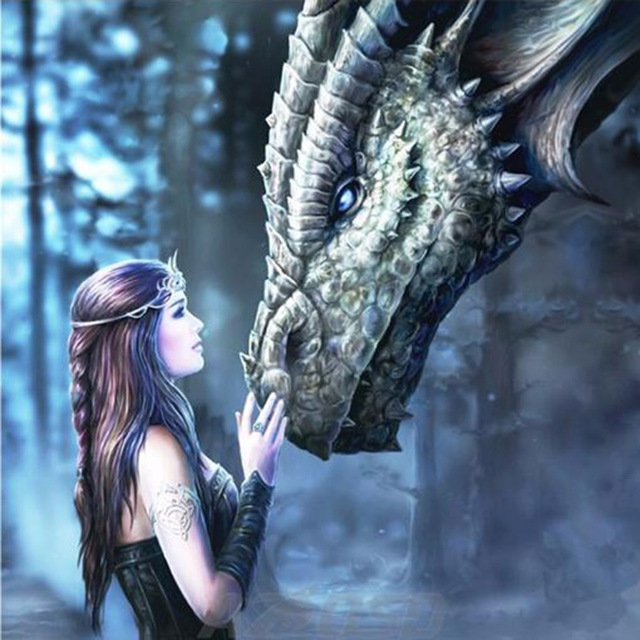Treasure
April 9, 2019
Everybody knows that a dragon’s purpose is to guard its treasure. Hundreds of fables tell the story of the wickedness of dragons, ones with glimmering scales and fiery breath. They hoard gold and silver and diamonds and rubies. They have piles of riches galore. They spend years amassing their wealth because dragons are nothing but greedy, materialistic demons.
Everybody also knows that a dragon guards the tower in which a princess is confined. A daughter of royal blood can spend her whole life inside the prison, forced to forever walk the twisted spiral staircases and carve tally marks into the walls as she waits for the day that her prince would come.
I remember the day my princess arrived.
It was late spring, and the rain on the castle’s roof had disturbed my slumber. The crashes of the thunder brought me to my feet, and I found myself wandering through the corridors, listening to the soft patter of the rain. Suddenly, a cry rang through my ears. I bolted to the entrance and tore open the wooden door. I expected knights to tear down the walls and mobs to get a glimpse of the frightening dragon that had dwelled there.
But instead, there was a tiny infant, weighing only as much as a small sack of sugar. She had a head of raven curls and immense, round eyes that were the color of hazelnuts. Swaddled in blankets of the finest silk, the newborn writhed on the cold stone floor. I lifted the baby and carried her inside. After feeding, bathing, and dressing her, she was asleep soundly and silently.
Her squirming turned to crawling, then to walking. Her inky hair grew longer with each passing day. She became taller and taller until she was no longer the size of my claw, and I had to learn to sew after she outgrew all her clothes.
She was introverted and sensitive, sweet as sugar and gentle as flower petals. She would dwell in the tower’s library, taking out books to read in the garden. She would sit out on the marble bench near the hydrangeas and the anemones as she read stories of romance and adventure. She would sneak back out to the garden at night to stargaze. She could not cook to save her life, and she almost burned down the tower more often than my breath did. She liked to knit and make candles, as well as sing and play piano. Her name was Kamila, an Arabic name that meant “perfection.” It suited her flawlessly.
When she was especially young, Kamila would tell me her dreams of her prince. She wanted a tall, handsome hero to whisk her off her feet. Her imagination grew wild with the prospect of his appearance, his personality, their wedding, and their children.
Her dreams stemmed from her childhood bedtime stories. I would tell her the fairytales I had heard from humans passing through the land, stories of a knight in shining armor rescuing a princess from a tower guarded by a dragon. Kamila grew fascinated with the idea. She too wanted a prince to come rescue her from the tower in which we resided. I could not bear to tell her that the prince had to kill the dragon, so I continued to let her daydream.
I had no idea the impact her fantasies would make. Yet, as she grew older, she pined more and more for her rescuer and lover. She would draw pictures and write stories of her idea of him.
But with every song she sang, with every picture she drew, with every story she wrote, I grew more and more upset.
I did not know what had come over me in my silent fits of anger. She would show me her work, and I would grit my teeth as I complimented it. I did not know why I had grown so upset over seeing her so infatuated with a boy she had never met. I spent months contemplating this. Parents do not get upset when their children talk about their futures. So what was the problem with me? Maybe it was because I did not want her to leave; I had spent years taking care of her and watching her grow up, and I just was not ready to give that up just yet. Maybe it was because I did not trust any man with her well-being. I wanted the best for my darling Kamila, and I knew no guy would ever guarantee her that. She was exactly as her name stated—perfection. She deserved nothing less.
But it was only a matter of time until I discovered the real reason behind my discontent.
I had fallen in love with her myself.
I knew this was not right. This was not how the story was supposed to go. The dragon was supposed to guard the tower, not fall in love with the princess. She was supposed to be with the prince, not me. I was the villain whose only fate was to be slain.
It was like a bad rendition of Beauty and the Beast. But I was not a cursed human; I was a nasty, greedy, materialistic reptile who breathed fire and hoarded my wealth. I did not have talking appliances and home accessories to befriend; I was lonely save for Kamila’s company. And worst of all, the princess was never going to fall in love with me. And that hurt the most.
I never told her about this. I figured it was better to keep silent, not destroy this relationship that I had spent so long trying to build. Ignorance was bliss, right?
Years later, even after it was all said and done, sometimes I regret my decision. Sometimes I find myself strolling around the castle, to the library and to her bedroom. Sometimes I sit on her bed and think to myself. Where did it all go wrong?
Kamila turned sixteen, then seventeen, then eighteen. Her excitement grew with each year. But as the time flew by and she grew older, she began losing hope. She tried not to let it put a damper on her emotions, but I could still see the pain behind those big, glassy hazelnuts. I knew her chances were growing slimmer as she aged, and although this secretly made me feel better, I would never admit that to her. Or to myself.
I began viewing myself just as the humans had viewed me. I was just as they said I was. Greedy. Selfish. Disgraceful. What dragon thinks they can somehow receive the love of a princess—a beautiful being of perfection? Why should she belong to me? There are thousands of others pining for her affection. Why should I deserve it? I have done nothing to earn it. Why do I think I can just receive it with the wave of a hand? I am nothing compared to the others. I am greedy, where they are humble. Selfish, where they are selfless. Disgraceful, where they are honorable. I am worth nothing compared to them. I am worth nothing. My actions do not compare to theirs. I am nothing.
For the first time in hundreds and hundreds of years, I cried. I cried because I knew I did not amount to anything. I cried because I knew I was a villain. I cried because I knew I was going to die at the hands of a hero, a man who would be praised for my murder. I cried because I was exactly what the others had said about me—an ugly, scary monster. And I cried because I knew I would never, ever be loved.
Little did I know that across the castle, Kamila was crying too.
At thirty-five years old, Kamila had finally lost all hope.
Those next few months were some of the worst either of us had ever faced. We refused to come out of our bedrooms, refused to look the other in the eye. It would be too difficult. She screamed and wept, and I set fire to everything in my bedroom. For her, it was easier to release her problems in the form of saltwater streams; as for me, I preferred watching my problems burn to the ground.
I finally came to terms with everything much sooner than she had. Yet, after many months, she came out of her room, stony-faced and sullen. She still would only accept food and water begrudgingly, but at least she was out of her hibernation, which was a start.
I hoped that everything would get back to normal after a few weeks, but it never did. Yes, she began talking to me and eating normally again, but she had lost the smile that pulled effortlessly at her cheeks and the gleam in her hazelnut eyes. It was heartbreaking.
Still, I never fell out of love for my darling Kamila. Her brokenness just made me want to hold her more. Are diamonds not cut on purpose to make them look more beautiful than their natural state? She just needed a little more help.
However, I should have known better. If you try to fix a broken mirror, you will only get cut by the shards.
Her pain hurt me more and more with each day. Watching her struggle forced me through battles of my own. Was it worth it anymore? Was she worth it? Meanwhile, she asked herself the same questions.
She waited eighty-four years for her prince. But he never came.
After Kamila’s death, I was lost. Alone. Never before had I loved someone so deeply and so passionately. Yet, she was gone. I would no longer see her silky, raven hair and soft hazelnut eyes. I would not be able to watch her read, stargaze, or almost burn down my kitchen.
I buried her in the garden. Next to the marble bench that she would never be able to keep warm again. Near the hydrangeas and the anemones that would wilt as they mourned her death. Six feet under. In the hard, cold ground.
That day was the hardest I had ever faced. My heart had not been stabbed by a handsome hero, but rather by my own excruciating agony. My throat burned, and tears seeped down my scaly cheeks. I could hardly bear it. Seeing her body in the ground—and being the one to put her there—was another form of torture.
The hole in my heart grew larger every day. She filled my life—that hole—with her love and kindness. Yet, more than that, I was a dragon, intended only to defend my valuables, my fortune. What purpose could I serve now? My princess was gone. Who was I to protect? Without her, who was I?
Everybody knows that a dragon’s purpose is to guard its fortune. But what they do not know is that the princess is the real treasure. Without her, we have nothing to defend.



















